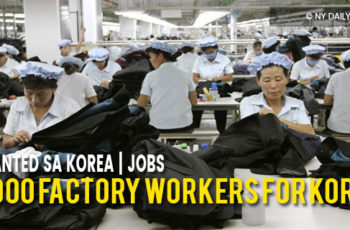Just recently, the Philippine Overseas Employment Administration (POEA) announced that Saudi Arabia is in need of 1,000 Filipino male nurses. However, the local health sector seemed unimpressed with the news.
This is all because the advertisement never mentioned the need for Filipino nurses to acquire a license from the Saudi Commission for Health Specialties aside from the required two years’ experience to get a nursing job in Saudi Arabia.
However, it was found out that a foreign health practitioner can somehow work in Saudi without the said license for one year but he is required to take the exam and he should pass it after three chances.
Moreover, according to Dr. Khaled Al-Jalban, a consultant in family medicine, the Saudi Commission for Health Specialties primarily need male nurses to take the Commission examination and pass it before they are allowed entry in Saudi Arabia. Taking the exam can be done through the official website of the Commission or several special centers operating for that particular purpose.
A leniency, however, is given to health practitioners recruited directly to work at the Ministry of Health hospitals. In this case, it is possible to let the male nurse go to Saudi Arabia before he takes the exam.
He will be allowed to take the exam thrice in that particular period but if he fails, the contract will be forfeited. This exam is very important to test the qualification of the applicant, whether he is suited for the position.
Dr. Al-Jalban further said that there is also a huge unemployment rate among Saudi nurses yet the country is recruiting more foreign nurses from countries abroad.
Dr. IssamMarshad also feels that foreign practitioners must be tested first before they can go to Saudi Arabia.
“Actually employers do not make it compulsory for non-Saudi health practitioners to obtain a license before coming to the Kingdom. We are demanding that foreign health practitioners must obtain a license before signing the contract and arriving in the Kingdom. According to the Commission’s regulations, even if a foreign health practitioner arrives in the Kingdom, legally he does not have the right to work in Saudi Arabia,” says Marshad.
Furthermore, the Philippine government has yet to issue their side of the story.






